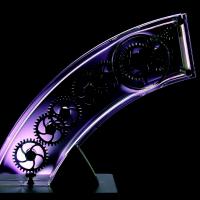Smart Testers Adopt Smart Automation

As technology evolves, so do product ideas, development capabilities, and quality strategies. Users are passionate to embrace new concepts, even in risky zones, and companies and stakeholders are willing to bet on bold ideas, even if the chances of failure are high.
While all of these evolutions are taking center stage, discussions around the role of quality continue to linger. Is manual testing still required? What should the role of automation be? With the kind of technology and product evolutions we are witnessing, where are we heading with quality?
When it comes to testing, automation is undoubtedly key. But it cannot be just automation—it has to be smart automation that leverages technologies such as artificial intelligence and machine learning. Even cognitive-rich areas such as accessibility testing are benefitting from automation solutions that leverage image recognition, language processing, and machine learning APIs.
While smart automation evolves, device testing is also gaining prominence. Smart in-house testing when field testing is not feasible is also becoming a more common option, now that cloud offerings are making applications more testable.
And as owning quality becomes everyone’s responsibility, testing solutions have become more widespread but dedicated testers are becoming rarer. Organizations do not want a large bandwagon of testers. Gone are the days when developer-to-tester ratios were three to one. Today, teams that have a ratio of even nine to one are not unheard of. While there is no single answer for determining the right ratios, the shrinking numbers showcase a collective ownership of quality.
A tester in such a model is not just a quality subject matter expert. They are a strategist, a technologist, a team player, a business liaison, an end-user advocate, a communicator, and a collaborator. Unless all these attributes come together, it is not going to be possible to achieve the velocities needed within the timelines of a tight sprint cycle.
With these high expectations from the quality discipline, smart testers hoping to develop their careers will have to brush up on their exposure and expertise. A high level of finesse is now being expected, even if the number of testers are fewer.
Of course, some areas of software products will continue to be tested manually due to varied reasons, including automation limitations, the need for cognitive manual skills, exploratory test efforts, product scope and business priorities, or constraints around cost and time. But that just means that in-demand testers will retain these manual testing skills while developing skills in automation as well.
While testing activities at a manual level will not become extinct, if you want to become indispensable, move up the quality value chain by embracing smart automation.

